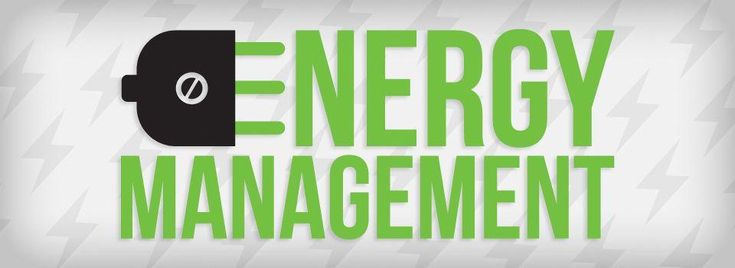Effective energy management is key to keeping costs low and staying competitive today. With rising energy costs, businesses must seek smart solutions to manage their energy consumption efficiently. Business energy brokers play a critical role in helping companies find the best energy deals, providing guidance on reducing energy usage while securing optimal contracts
Today, we’ll explore essential strategies for mastering business energy management, discuss current trends in business electricity prices, and highlight how leveraging professional expertise can streamline energy decisions.

What is Business Energy Management?
Business energy management tracks and optimises a company’s energy consumption to reduce costs and improve efficiency. It involves not just tracking energy usage but also finding the most competitive business electricity providers and suppliers that offer tailored business electricity plans. Companies often hire brokers to assist in comparing business electricity plans and ensuring they secure the best rates.
Effective energy management isn’t just about cutting costs; it’s also about sustainability and environmental responsibility. Companies prioritising energy-efficient solutions can reduce their carbon footprint and demonstrate a commitment to corporate social responsibility. Additionally, adopting efficiency measures can significantly boost a company’s public image and lead to long-term savings on energy costs. You can also check out the meaning of wholesale energy management.
Key Energy Management Strategies for Businesses
-
Reducing Energy Consumption for Greater Savings
Reducing energy consumption is one of the most effective ways to control costs. This can be achieved through practical steps like switching to energy-efficient appliances, using smart thermostats, and encouraging employees to adopt energy-saving practices. Companies can also schedule regular energy audits to identify areas where energy is being wasted.
-
The Role of Business Brokers in Securing Better Rates
Business brokers are specialists in helping companies find the most competitive energy deals. Their expertise includes comparing business electricity plans, negotiating contracts, and securing business energy prices that align with a company’s needs. Working with a business energy broker can save time and money, as brokers can access a wide range of business electricity providers and utility brokers.
The Benefits of Using an Energy Broker:
Access to Wholesale Energy Prices: Brokers have industry insights that allow them to provide access to more competitive rates.
Negotiating Business Energy Contracts: Energy brokers can negotiate contract terms to secure long-term price stability.
-
Comparing Business Electricity Plans
Choosing the right business electricity plan is essential for effective energy management. Companies must compare business electricity plans offered by different providers. This comparison should include factors like pricing, contract duration, and flexibility. Businesses should also review any hidden fees or penalties arising from early termination.
When comparing plans, consider the potential for future growth and any changes in energy consumption that might occur as your company scales. Understanding how much energy your business uses can help you select the most cost-effective plan.
-
Energy Efficiency Measures
Efficiency measures such as upgrading to LED lighting, installing motion sensors, and using energy-efficient heating and cooling systems can dramatically reduce energy consumption. Implementing these changes decreases operational costs and boosts energy efficiency, helping businesses meet regulatory standards and reduce their environmental impact.
-
Energy Prices and Market Trends
Energy prices fluctuate based on market conditions, weather patterns, and geopolitical events. Staying informed about these trends is crucial for businesses to secure competitive energy rates. Business energy suppliers often offer variable or fixed-rate contracts, and choosing the right option depends on the company’s risk tolerance and energy consumption patterns.
For example, according to a recent market report, business electricity prices in the UK increased by 5% in 2023 due to rising wholesale costs. Companies that locked in fixed-rate contracts were shielded from this spike, highlighting the importance of strategic planning in energy management.
-
Energy Management Services
Many businesses opt to outsource their energy management to specialised energy management services. These services typically include monitoring energy usage, developing customised energy efficiency strategies, and providing detailed reports on energy consumption trends. Partnering with an energy management service allows companies to focus on their core business operations while experts handle their energy needs.

-
Commercial Energy Brokers
Commercial energy brokers are an invaluable resource for large companies with complex energy requirements. They specialise in finding tailored solutions for high-volume energy users, including securing bulk energy deals and advising on large-scale energy efficiency projects. These brokers also help companies navigate complex business energy contracts and ensure they meet compliance regulations.
Conclusion
Mastering business energy management requires a combination of smart strategies, efficient energy usage, and leveraging professional expertise to enhance energy evolution. Working with energy brokers, comparing business electricity plans, and implementing energy efficiency measures can significantly reduce operational costs and support a sustainable future for your company.
FAQs
- How do energy brokers help reduce costs?
Energy brokers analyse your company’s consumption and negotiate the best deals with business energy suppliers, often securing lower rates than you could.
- What are the benefits of comparing business electricity plans?
Comparing business electricity plans allows you to choose the most cost-effective option, considering price, contract terms, and energy usage patterns.
- How often should businesses conduct energy audits?
It’s recommended that businesses conduct energy audits annually to identify inefficiencies and take action to reduce energy consumption. Regular audits help keep costs under control.
